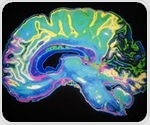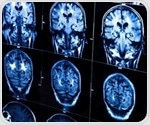| How the gut microbiome contributes to schizophrenia |
|
|
|
|
| |
|
| |
The latest schizophrenia news from News Medical |
|
|
|
 | | |  Decoding schizophrenia: insights and impacts from genetic discoveries Decoding schizophrenia: insights and impacts from genetic discoveries A recent study in Molecular Psychiatry delves into the genetic architecture of schizophrenia, uncovering insights into common and rare genetic variants, treatment resistance, and the evolutionary paradox of the disorder. This research highlights the complex nature of schizophrenia and the need for a transdiagnostic approach to psychiatric research. | | | | |  How the gut microbiome contributes to schizophrenia How the gut microbiome contributes to schizophrenia Researchers explore potential relationships between schizophrenia, the gut microbiome, the gut-brain axis, and short-chain fatty acids. | |
|
|
| |  | | |  Schizophrenia, a neurodevelopmental disorder that features psychosis among its symptoms, is thought to arise from disorganization in brain connectivity and functional integration. Schizophrenia, a neurodevelopmental disorder that features psychosis among its symptoms, is thought to arise from disorganization in brain connectivity and functional integration. | | | | |  In a mouse study designed to explore the impact of marijuana's major psychoactive compound, THC, on teenage brains, Johns Hopkins Medicine researchers say they found changes to the structure of microglia, which are specialized brain immune cells, that may worsen a genetic predisposition to schizophrenia. In a mouse study designed to explore the impact of marijuana's major psychoactive compound, THC, on teenage brains, Johns Hopkins Medicine researchers say they found changes to the structure of microglia, which are specialized brain immune cells, that may worsen a genetic predisposition to schizophrenia. | | | | |  Scientists at the UCL Institute for Neurology have developed new tools, based on AI language models, that can characterize subtle signatures in the speech of patients diagnosed with schizophrenia. Scientists at the UCL Institute for Neurology have developed new tools, based on AI language models, that can characterize subtle signatures in the speech of patients diagnosed with schizophrenia. | | | | |  The discovery of a physical interaction between two proteins in brain cells that can be traced in mice to control of movement, anxiety and memory could one day open the door to development of new schizophrenia treatment strategies, researchers say. The discovery of a physical interaction between two proteins in brain cells that can be traced in mice to control of movement, anxiety and memory could one day open the door to development of new schizophrenia treatment strategies, researchers say. | |
|
|
|
|
|
|
|